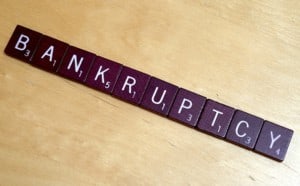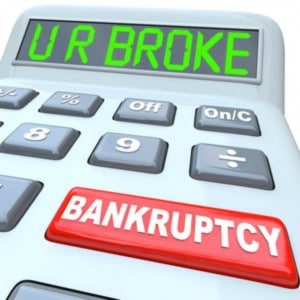 I never realized that loans Toronto no credit check was such a popular topic. I want to tell you about three experiences that I had in the past few days. They are all separate, yet all related.
I never realized that loans Toronto no credit check was such a popular topic. I want to tell you about three experiences that I had in the past few days. They are all separate, yet all related.
Revelation #1 – You can’t even buy beer with bad credit!
Last Friday, we were having the whole family over for dinner. The weather was so warm and pleasant, that we were going to have a BBQ and eat outdoors on the back deck. I went to The Beer Store to pick up some additional beverages and when I went to check out, I had my first revelation. At the front of the line was a fellow paying for his beer by cheque. I never even realized that you could do that. The clerk inspected the cheque and then asked the gent for identification, and he produced his drivers licence. The clerk ran his information through The Beer Store’s electronic system and politely advised the gentleman that he has been declined to pay by ordinary cheque, and that he could only pay by cash, certified cheque or credit card. The man could not pay for his beer because of his bad credit and had to leave without his favourite brew. This man obviously has financial problems and has to solve them. How he wished he was able to get at that moment one or more loans Toronto no credit check so that he could enjoy his beer last weekend!
Revelation #2 – This man obviously was not alone needing loans Toronto no credit check
On the weekend I was looking at some analytics to see which of our blogs have been accessed the most over the last 30 days. To my shock (yes, notwithstanding our Firm has been helping people who have trouble living paycheque to paycheque and corporations in need of restructuring and turnarounds, I can still be shocked) the 4 most read blogs in the last month were::
- BAD CREDIT LOANS TORONTO: LEGIT COMPANIES DON’T GUARANTEE THEM
- STUDENT LOAN DEBT, DOES IT AFFECT THE ECONOMY?
- PAYDAY LOANS: ONTARIO CRACKS DOWN ON THE CASH STORE
- THE CASH STORE ONTARIO: THIS PAYDAY LOAN OUTFIT NEEDED HELP AND CALLED A TRUSTEE!
There are obviously a lot of people concerned about their debt levels and looking for information on bad credit loans, payday loans, loans Toronto no credit check and how to tackle student loan debt. These blogs were not only the most viewed in the last 30 days, but our blogs on the topic of payday loans and bad credit loans are the most read. Obviously, there is a large demand in the Greater Toronto area for loans Toronto no credit check.
Revelation #3 – Our top searches are from people looking for loans Toronto no credit check
Yesterday I look at our analytics to see what were the top search terms that brought people to our blog and Firm website in the last 30 days. There were 221 visits to our website using the following search terms:
- no upfront fee loans;
- $5000 bad credit personal loan;
- $5000 loan Canada; and
- $5000 loan no credit check.
You don’t need me to tell you what this means. There are a lot of people with bad credit who are feeling pain in our society and believe that more loans Toronto no credit check is their solution. The amazing thing though is that rather than looking for bankruptcy alternatives such as consumer proposals, or if required, bankruptcy itself, these people are looking to borrow more money (apparently $5000 is a popular number) from high cost lenders.
These people are misguided in that they think that further high cost loans Toronto no credit check will solve their problem. I understand the way these people think. It is hard for us to face our challenges. Whether it is about our health, our family or our financial situation, it is difficult and painful to look at our problems straight in the face, especially if we are the one who created the problem. These people mistakenly think that taking on more debt is the solution.
Well, it is not. These people need to recognize that their credit score is so poor because of choices they have made in the past, and their behaviour has to change. Taking on more debt through loans Toronto no credit check is just more of the “same old same old”. They need to look at ways to budget so that their expenses are less than their income. They need to start saving to pay down debt. If they can’t do it on their own, then they must consult a licensed professional trustee who can discuss options with them: budgeting, bankruptcy alternatives such as debt consolidation or a consumer proposal or perhaps even bankruptcy.
There also needs to be a discussion regarding life after implementing the solution and working on improving their credit score. If any of this sounds like a situation you are in, taking on more debt through payday loans or loans Toronto no credit check is not your answer.
You need to contact Ira Smith Trustee & Receiver Inc. right away for a no charge consultation. You can even check out our bankruptcy faqs now online here. We will go over all of your options, and encourage and help you to implement the one that is right for you so that together we can solve your problems with immediate action and the right plan so that Starting Over, Starting Now will become your reality.








